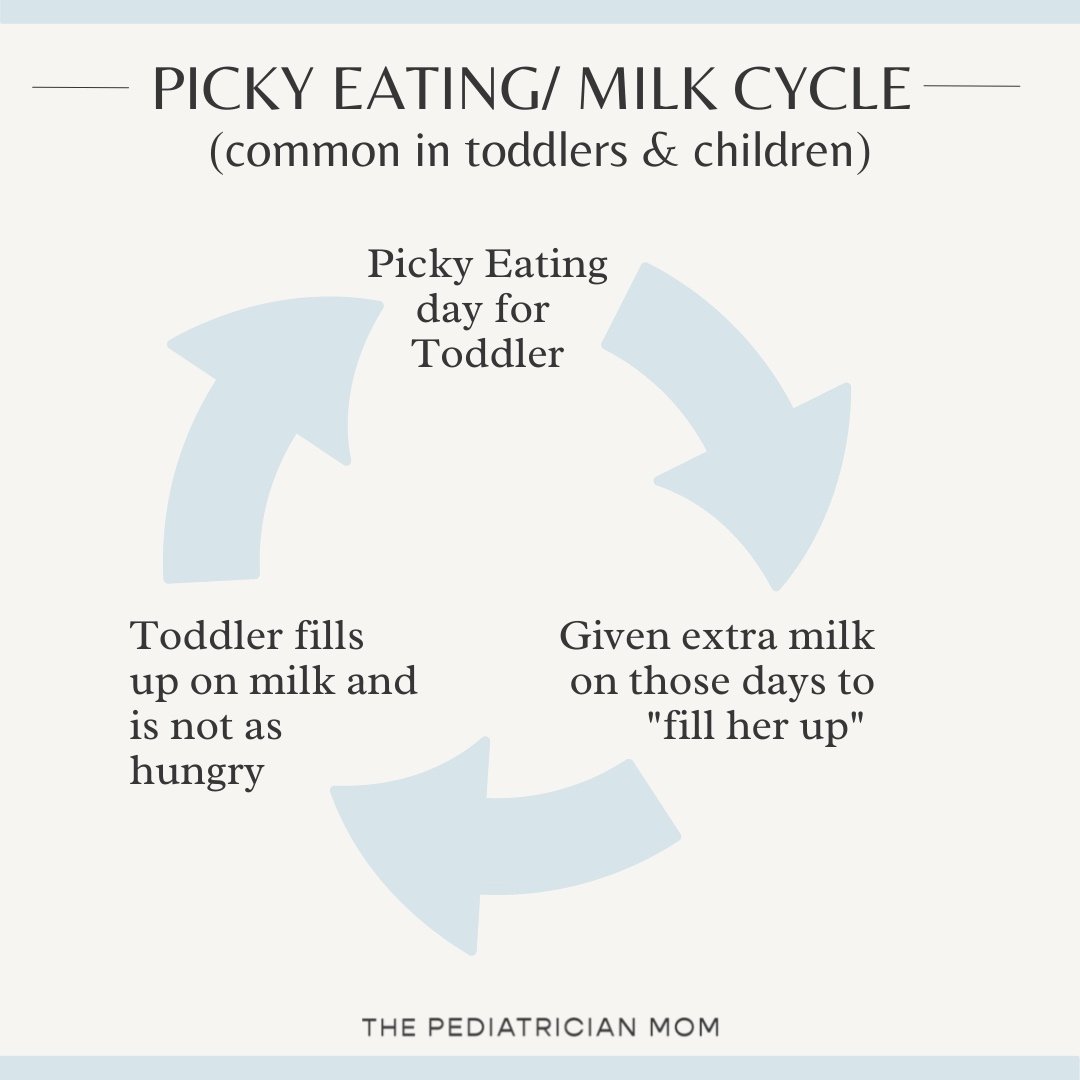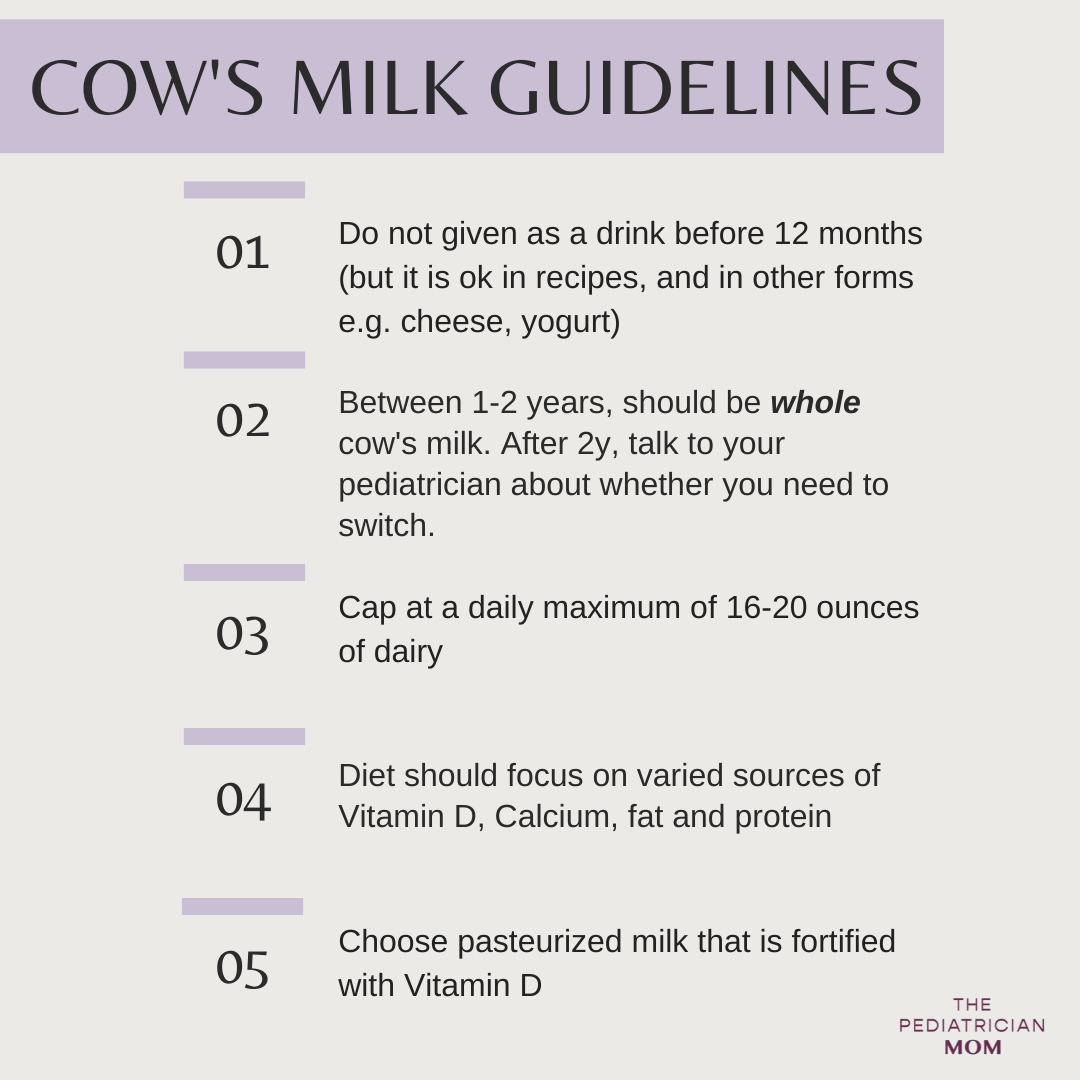Cow’s milk: is it really good for a growing child?
Got milk???
Many of us grew up hearing that cow’s milk was “good for a growing child” - but is this actually true? Is cow’s milk essential for our kids?
The answer? It depends.
There is a lot of nuance to understanding the role of cow’s milk in a child’s diet. Here are some of the factors to consider.
Transitioning from breast milk/formula
In the US, many children transition to cow’s milk around a year of age. There is a widespread assumption that children “need” milk to be healthy, partly a relic of the fact that human milk/formula are essential under a year of age, and partly related to effective lobbying from the milk industry.
Now, it is true that cow’s milk provides a number of essential nutrients, which are important for healthy bones and teeth, immunity, brain development and growth. But it is certainly not the only dietary source for these nutrients.
The Pediatrician Mom Tip: like most things, moderation is key. Too much cow’s milk can also lead to health issues.
Advantages of cow’s milk
Nutritious: Nutrients in cow’s milk include calcium, Vitamin D, protein, fat, and multiple vitamins. These are obviously important for growth.
Tasty: Although this is not true for everyone, many children enjoy the taste of dairy products. Because they come in many forms and textures (cheese, cottage cheese, yogurt, etc), dairy can be an easy way to get nutrients into otherwise picky children.
Inexpensive and convenient: Compared to many of the milk alternatives available, dairy is relatively cheap and easily available at all grocery stores.
Potential issues with cow’s milk
Not comprehensive nutrition: Although cow’s milk has some important nutrients, it is not a complete source of nutrition (unlike formula or human milk). It cannot be seen in the same way as milk before the age of 1, and that mental adjustment - seeing milk as only part of what your child needs - can be tough for parents and kids.
Worsens picky eating
This often surprises parents, but we see it in pediatrics all the time. Toddlers are naturally picky, and many parents fall into the trap of just giving them milk if they don’t want to eat. But cow’s milk is heavy and filling, and it can interfere with appetite — leading to worse eating.
Can cause anemia: Calcium interferes with iron absorption, which means excessive cow’s milk intake can lead to poor absorption of other nutrients from food. We routinely check toddlers for anemia at age 1 and 2 (in the US), but this is something to be watchful for. If your child is on Iron supplementation, you will be instructed not to give the supplement at the same time as dairy!
Not everyone can digest it: For some children, cow’s milk can cause abdominal discomfort, gas, and stool changes.
Has been associated with health problems down the line: Excessive intake of cow’s milk (>3 cups per day) is associated with obesity. However, these associations are hard to study well because it is challenging to set up controls (a family with excessive cow’s milk intake may have other dietary trends that also correlate with obesity).
Environmental and animal welfare concerns: I am not an expert in this area, but it is true that cow’s milk has more of an environmental impact than most of the plant-based alternatives.
Okay, so what are the recs?
What about for kids who can’t (or won’t) drink cow’s milk?
Some children are unable to drink cow’s milk due to allergies, intolerance, or simply dislike. There is no rule that says children need milk after a year of age, but for these children it is important to be attentive to alternative sources for these nutrients.
There are also many plant-based milk alternatives that are popular. Stay tuned for an upcoming post with info on these!
Cow’s milk is not essential, but vitamin D, protein, calcium and fat are important for growth. Check out my next post to learn alternative ways to meet these needs.






